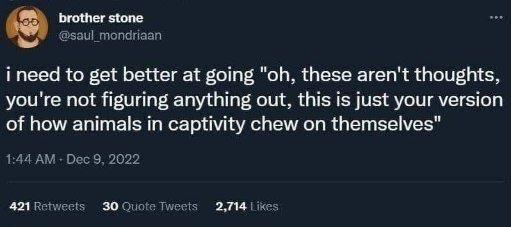aspiring author ~ she/her ~ 20sTags/asks always welcomeFeel free to say hiThanks for stopping by & have a lovely day/night
Don't wanna be here? Send us removal request.
Text
…and then you start crying uncontrollably too
i think everyone should program at least once just so you realise just how fucking stupid computers are. because theyre so fucking stupid. a computer wants to be told what to do and exactly that and if you make one typo or forget one detail it starts crying uncontrollably
#comp sci#sometimes I fall asleep trying to work out bugs in my mind#maybe the real reason I’m such a stickler for grammar is the coding not the writing#I can’t remember the last time I forgot a semi colon so I’m probably due for one of those soon
25K notes
·
View notes
Text


COVER REVEAL!
the incredible team at norton young readers put together an absolute slam dunk of a cover for my next YA, MAYBE TOMORROW I'LL KNOW.
it's already up for pre-order! (and if you add it on goodreads i'll love you forever)
OUT APRIL 7, 2026
198 notes
·
View notes
Text
Hey. Why isn’t the moon landing a national holiday in the US. Isn’t that fucked up? Does anyone else think that’s absurd?
281K notes
·
View notes
Text
you ever feel like you were born with something rotten inside you and if people get close enough they’re gonna find out
189K notes
·
View notes
Text
You ever wanna talk about your ocs but you dont have anything to say really you just kinda

22K notes
·
View notes
Text
I've been noticing myself doing this recently, so I figured I'd put it out there in case someone else needs the reminder too:
You don't need to diminish yourself in order to make others feel good about themselves.
You can compliment someone else without insulting yourself. In fact, demeaning yourself will probably make it more difficult for the other person to accept the compliment.
You also don't need to disparage your own abilities in order to give someone else confidence. You can be a capable person and support other capable people.
Don't tear yourself down to build someone else up.
5K notes
·
View notes
Text
GUIDE: NAMING A TOWN OR CITY
This post was originally from a FAQ, but since the original link is now defunct, I am re-posting it here.
There are many things to keep in mind when naming the town or city in your novel:
1) Genre/Theme/Tone
It’s very important to consider the genre and theme of your story when choosing a town name. Take these names for example, each of which indicates the genre or theme of the story: King’s Landing (sounds fantastical) Cloud City (sounds futuristic) Silent Hill (sounds scary) Sweet Valley (sounds happy and upbeat) Bikini Bottom (sounds funny) Radiator Springs (sounds car-related) Halloween Town (sounds Halloween-related) Storybrooke (sounds fairytale-related) 2) Time/Place It’s also important to consider the time and place where your story takes place. For example, you wouldn’t use “Vista Gulch” as a name for a town in Victorian England. You probably wouldn’t use it for a town in modern day North Carolina, either. Vista is a Spanish word and would normally be found in places where Spanish names are common, like Spain, Central and South America, the southwest United States (including southern California), Cuba, Puerto Rico, Dominican Republic, and Florida. 3) Size/Settlement Type An isolated town of 300 people probably won’t be Valley City, but a sprawling metropolis of 30 million could be called Windyville, because it could have started out as a small town and grew into a large city. 4) Geography Words like gulch, butte,and bayou tend to be regional terms. You probably wouldn’t find Berle’s Bayou in Idaho, or Windy Butte in Rhode Island. Words like mount, cape, and valley are dependent upon terrain. Most of the time, you won’t have a town named “mount” something unless there are hills or mountains nearby. You wouldn’t use “cape” unless the town was on a cape, which requires a large body of water. 5) History Is there a historical person or event that your town might be named after? The Simpsons’ hometown of Springfield is ironically named after its founder, Jebediah Springfield. Chattanooga, Tennessee is named after the Cherokee town that was there first. Nargothrond, in The Lord of the Rings, is an Elvish town with an Elvish name. 6) Combination of Words
person name + geographical term = Smithfield, Smith Creek
group name + geographical term = Pioneer Valley, Settlers’ Ridge
descriptive word + geographical term = Mystic Falls, Smoky Hill
person name + settlement type = Smithton, Claraville
landmark + settlement type = Bridgton, Beaconville
Word Lists
Types of Settlements

Geographical Features
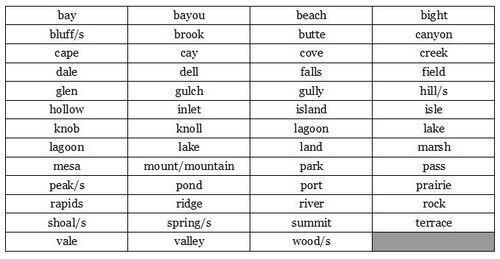
Place Words

Common Suffixes
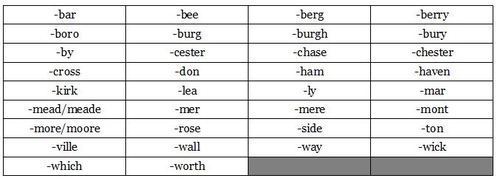
Other Descriptors
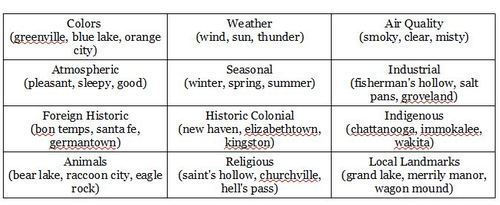
28K notes
·
View notes
Text

I wasn’t crazy about this piece so I wasn’t intending on publicly posting it again, but it keeps getting stolen every five minutes so I figured I’d put it here so people at least know who to attribute the original thing to lmao
[Digital illustration, Procreate App, 2020]
155K notes
·
View notes
Text



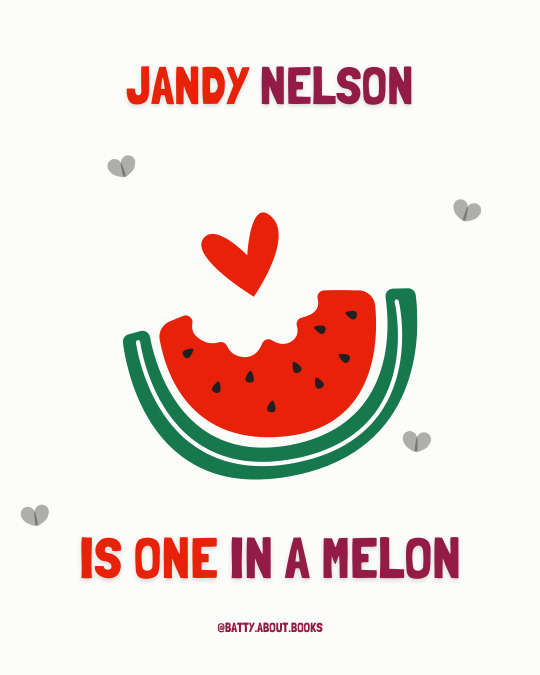



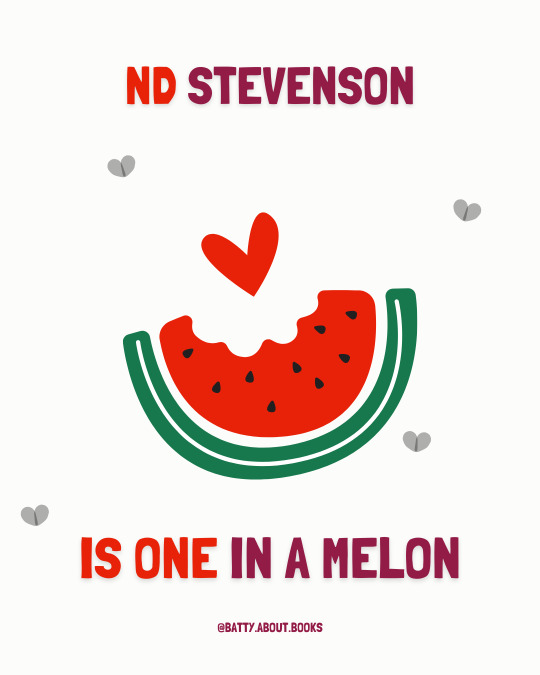





thank you for your queer stories.
@julianwinters @tjalexandernyc @xiranjayzhao @gingerhaze @lgbtqreads
13 notes
·
View notes
Text
Hey hey hey writers!!! Especially y'alls who are struggling to develop character or have white room/still character syndrome!!!
Look into Uta Hagen's acting techniques, specifically her 9 questions. I'm not kidding. She built off Stanislavski's techniques to help actors develop their characters and roles & bring that to the stage- specifically, and this is why I'm pushing Hagen specifically and not anyone else, their relationship with the set, props, other characters, setting (yes that's different from set), history and the play's plot, and how that changes how they act and speak. I have my textbook open I'll take some pictures.


If you need a transcript/image description I'll put it under the cut, they're a little blurry cause I'm bad at holding my phone... I know alt text is a thing but I don't want y'alls to have to scroll through a tiny box lmao.
[Image 1 alt text]
The lower part of a textbook page. The text reads:
Uta Hagen's acting exercises
[Out-of-transcript note: Most of these, with the exception of Three Entrances, are less useful in terms of writers, but you could make it work, especially for roleplay.]
Basic Object Exercise: Sometimes called "two minutes of daily life," this exercise requires the actor to replicate activities from their own daily routine in specific detail (think making breakfast or getting ready to go out). The goal of this exercise is to increase the actor's awareness of their un-observed behaviour.
Three Entrances: Starting offstage, the actor enters the environment of the scene. The actor's performance should answer three questions: What did I just do? What am I going to do? What is the first thing I want?
Immediacy: Hagen asked actors to search for a small object that they need. You can perform the exercise on a set or in your home. As you search, you should observe the behaviour and thoughts that arise as you authentically try to find something. The objective is to identify the thoughts, behaviours, and sensations you experience when you genuinely don't know the outcome, so you can use them on stage.
Fourth Side: This exercise starts with a phone call to a person you know. You should call them with a specific objective in mind. During the convention, Hagen wants you to focus on your surroundings and the specific objects that your eyes rest on. The purpose is to help actors observe how they interact with all dimensions of an enclosed physical space so they can recreate privacy on stage.
Endowment: this exercise is designed to help actors apply their observed behaviours to endow props with qualities that they cannot safely have on stage. Hot irons and sharp knives are typical examples. The Endowment excercise asks actors to believably treat objects on stage as though they have the qualities the actor needs in a scene.
Uta Hagen's exercises are her greatest gift to actors working today. She developed them between Broadway jobs to solve some acting problems she had never seen anyone tackle to her satisfaction. The result is that Hagen's exercises give actors a way to observe human behaviours and catalogue it so they can recall it onstage when useful in a role.
[Image 1 alt text end]
[Image 2 alt text]
Most of a textbook page. The image cuts off about 3 quarters of the way down the page. The text reads:
Uta Hagen's 9 Questions
Who am I? This question's answer includes all relevant details from name and age to physical traits, education, and beliefs.
What time is it? Depending on the scene, the most relevant measure of time can be the era, the season, the day, or even the specific minute.
Where am I? This answer covers the country, town, neighbourhood, room, or even the specific part of the room.
What surrounds me? Characters can be surrounded by anything from weather to furnishings, landscape or people.
What are the given circumstances? Given circumstances include what has happened, what is happening and what will happen to a character.
What are my relationships? Relationships can be with the other characters in the play, inanimate objects, or even recent events.
What do I want? Wants can be what the character desires in the moment, or in the overall course of the play. [Out-of-transcript note: I recommend figuring out both for writing, the former multiple times for whenever it changes! Outside of Hagen's technique, we call it objective and superobjective.]
What is in my way? This is the actor's chance to understand the obstacles the character must react to and overcome.
What do I do to get what I want? In Hagen's teaching, "do" means physical action.
Uta Hagen's nine questions help actors develop the granular details of their character's backstory. The questions come from Hagen's first book, "Respect for Acting," though in her later book, "A Challenge for the Actor," she condensed her original nine questions into six steps.
Uta Hagen's revised six steps to building a character are:
Who am I?
What are the circumstances?
What are my relationships?
What do I want?
What is my obstacle?
What do I do to get what I want?
Later in her life, Hagen distances herself from her first book and encouraged her students to rely on her second book, which she felt was clearer about her concepts. Both books are popular with acting teachers and students today, however. Hagen's questions and steps are the foundation for all of her acting exercises. Whether you rely on the nine questions or the six steps depends on personal preference.
[Image 2 alt text end]
Personally I like the 9 questions more, but like the book says, personal preference! So yeah, if you're a writer, try some of these out for your characters. :]
2K notes
·
View notes
Text
Self sacrifice in an "i can take it; you can't" way X self sacrifice in an "you can take it; and i know i can't, but it'd rather this than letting you through it" way X self sacrifice in an "neither of us can take it. it doesn't matter, 'cause its gonna be me" way
2K notes
·
View notes
Text
Y'ALL.....IT'S FULLY FUNDED
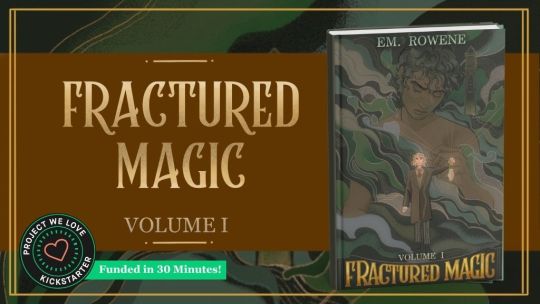
I launched the Kickstarter for Fractured Magic THIS MORNING and it funded in 30 minutes! I'm blown away. Seriously. I truly believe in this book and can't wait to bring it to print!
In a world full of AI books and the corporate sanitization of fiction, it's easy to get discouraged as a queer indie author pouring their heart into their art, but this has given me so much hope. If you've already backed the project, I can't thank you enough.
And if you haven't yet but now you're intrigued, let me tell you about Fractured Magic: it's an M/M epic fantasy about a prince's quest to rescue his missing king and the noble hero who comes back from the dead to stop him.
More than that, it's about loss and loneliness, staying kind when the world wants you cold, and what to do with a government that no longer cares about its own people.
You can learn more about it on the Kickstarter page!
If you like epic fantasy, gothic lit, or ex-friends who act like they've gone through a messy divorce, I highly recommend you check it out.
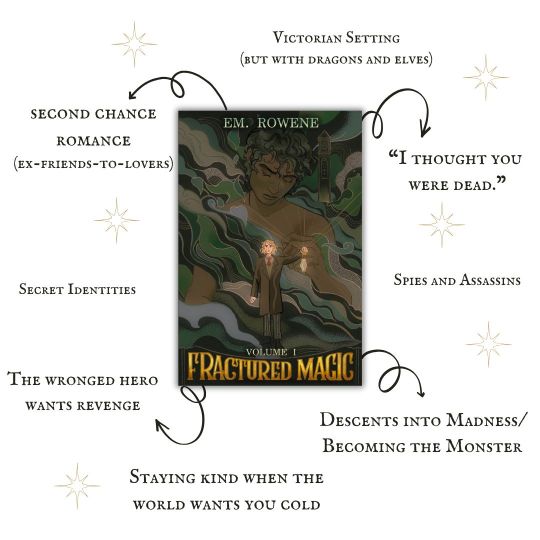
Cover art by littlestpersimmon.
264 notes
·
View notes
Text
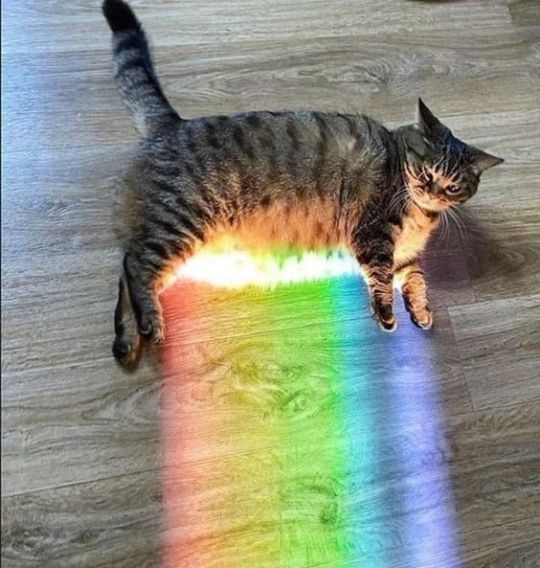
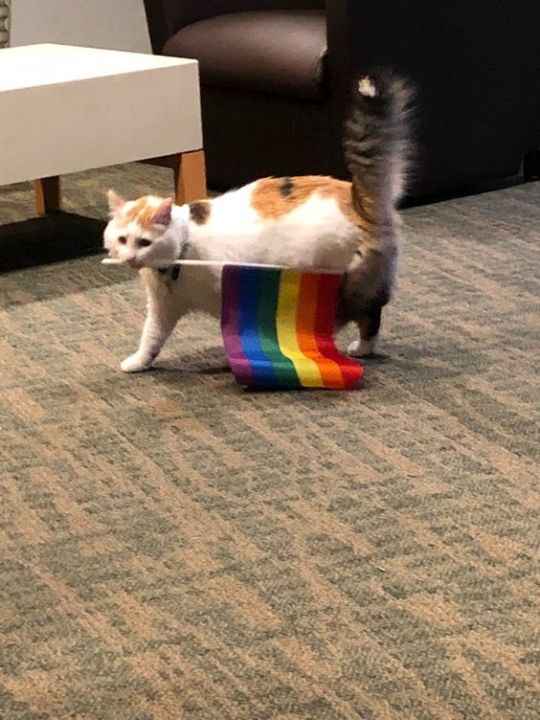


Happy Pride Month

87K notes
·
View notes
Text
I like this take a lot! Especially one of those last lines: there’s no such thing as unimportant writing.
Really powerful! Keep up the important writing y’all!
i keep seeing this post about how there's no such thing as bad writing and i understand that it's meant to be encouraging but like. there is. there just is!
sometimes an ending doesn't land. sometimes a plot line is too convoluted. sometimes dialogue is stilted. writing can be cliche or redundant or unclear or just not flow well
and unless you're a writing prodigy who has been curating perfectly crafted prose since birth, you're gonna write something bad. god knows i've written plenty of bad (and still do). it's part of the process!
knowing why something doesn't work is more beneficial than just saying, "well it's art, it can't be bad"
all of this to say, there's no such thing as unimportant writing. only way to get better is to practice, and when you practice, you're inevitably gonna fail. and that's fine! that's normal! don't limit yourself by refusing to acknowledge and analyze those failures
100 notes
·
View notes
Text
hey, don’t cry. one half flour one half yogurt knead into dough and fry for easy flatbread and dip in balsamic vinegar, okay?
140K notes
·
View notes

